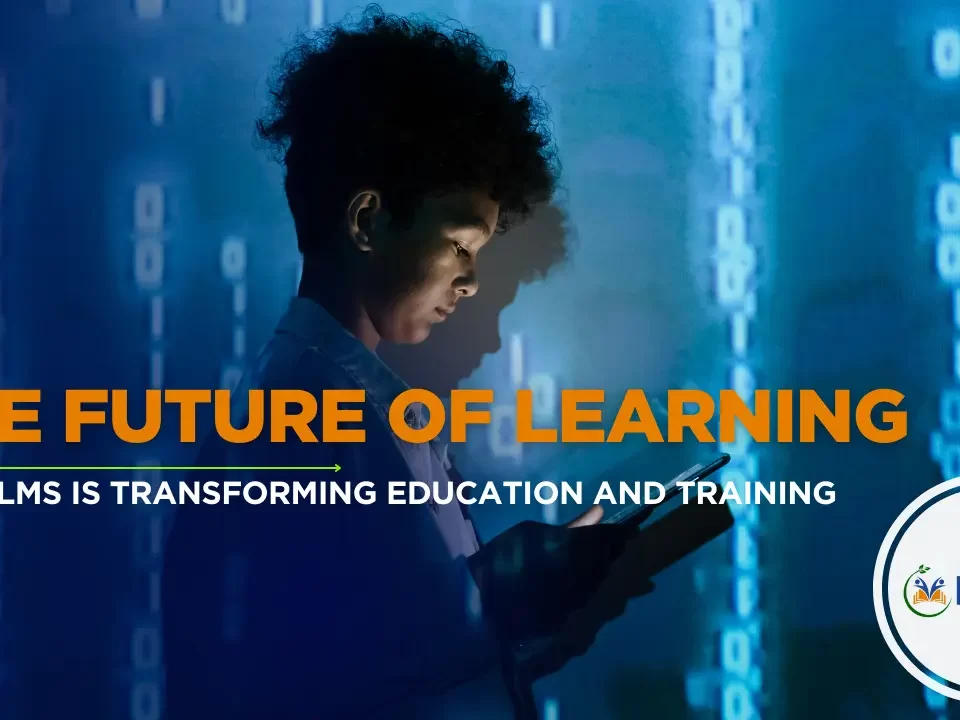
Why Upskilling in AI is the Key to Future-Proofing Your Career
August 8, 2024
Analyzing the Effect of Your Training Programs using LMS Analytics
September 25, 2024Part 2: AI Upskilling: Future-Proofing Careers and Bridging the Skills Gap
Artificial intelligence (AI) is developing at a quick pace, but it's more than simply a new technology—rather, it's a fundamental change that is changing the nature of work globally. Professionals with AI literacy are in high demand as AI continues to enter numerous sectors. The necessity of preparing for this shift by gaining the necessary skills was emphasized in the first section of our investigation into AI upskilling.
In this follow-up, we go further into the particular AI skill sets that are necessary to protect your job, the possible applications of AI across industries, and strategies for overcoming the obstacles posed by this technological revolution.

The Importance of AI Literacy in the Modern Workforce
AI literacy is a thorough grasp of how to apply AI tools and methodologies to address real-world problems, going beyond simply knowing how AI works. This covers an understanding of natural language processing (NLP), machine learning (ML), data analytics, and AI ethics. Professionals who can bridge the gap between technical AI expertise and useful commercial applications will be in high demand as organizations progressively incorporate AI into their operations.
A McKinsey & Company analysis estimates that 70% of businesses will have implemented AI in one way or another by 2030. Even if the use of AI is growing, the same research points out a huge skills gap in the workforce: very few people are sufficiently prepared to manage these new technologies.
AI in Action: Transforming Industries
Numerous sectors are already feeling the impact of AI, as they all take use of its promise to encourage innovation, efficiency, and expansion. The following are some important industries where AI is having a big impact:
- Healthcare: By allowing quicker and more accurate diagnoses, AI is transforming the healthcare industry. AI systems, for example, are able to examine medical photos and identify diseases like cancer early on. Furthermore, in order to get better results, AI-powered technologies are being employed to customize treatment regimens according to a patient's genetic composition. According to research by Accenture, by 2026, AI applications in healthcare may save the US healthcare system $150 billion a year.
- Banking: To improve customer service, streamline decision-making procedures, and reduce risk, the banking industry has embraced AI. Algorithms powered by AI are utilized for a wide range of tasks, such as fraud detection and stock market trend prediction. PwC estimates that by 2030, artificial intelligence (AI) may boost the world economy by up to $15.7 trillion, with the banking industry standing to gain the most.
- Retail: Chatbots and virtual assistants, along with AI-enabled supply chain optimization and tailored recommendation capabilities, are revolutionizing the retail buying experience. AI is being used by businesses like Amazon and Walmart to manage inventories, forecast customer behavior, and improve logistics. A study by Juniper Research found that the value of transactions processed by smart checkout technologies increased from $2 billion in 2020 to $387 billion in 2025.
- Manufacturing: AI is revolutionizing the manufacturing industry by automating processes, improving quality, and reducing downtime. IoT devices and AI-powered robots are enabling more flexible and efficient production lines. A recent Deloitte survey found that AI could significantly boost industrial productivity. However, the focus has shifted to Generative AI, which three-quarters of respondents expect to transform their organizations within three years. Despite high expectations, many leaders feel unprepared to address governance and risk issues related to Gen AI adoption. Additionally, only 47% believe their organizations are sufficiently educating employees on Gen AI.
- Education: AI has the potential to completely change the field of education by automating administrative work, customizing the learning process, and giving teachers and students immediate feedback. AI-powered systems may adjust course material to each student's unique learning style and speed, increasing accessibility and efficiency in the classroom.
Navigating the AI Skills Landscape
AI is being adopted by sectors at a rapid pace, which brings with it both benefits and difficulties. On the one hand, artificial intelligence is giving rise to new professions like machine learning engineers, data scientists, and AI ethicists that were nonexistent ten years ago. However, technology is also replacing conventional employment, especially those that include repetitive, regular work.
In order to remain competitive in an ever-evolving world, you must always be updating your skill set. The following are some essential and in-demand AI-related skills:
- Data Visualization and Analysis: In a world driven by artificial intelligence, knowing how to understand and display data is essential. For data visualization, programs like Tableau, Power BI, and Python are frequently utilized; nevertheless, understanding statistical analysis is necessary to interpret complicated information.
- The fundamental technologies of artificial intelligence are machine learning and deep learning. While deep learning employs neural networks to handle enormous volumes of data, machine learning includes teaching algorithms to learn from data and generate predictions. Having knowledge of frameworks like PyTorch, Keras, and TensorFlow may be very beneficial.
- The ability for robots to comprehend and react to human language is provided by natural language processing, or NLP. This ability is especially crucial for jobs involving automated translation, content production, and customer care using AI. In NLP jobs, tools such as SpaCy, NLTK, and GPT models are frequently utilized.
- AI Ethics and Governance: As AI is incorporated into society more and more, ethical issues become critical. Comprehending AI ethics entails tackling concerns pertaining to prejudice, openness, and responsibility. This knowledge is crucial for developing fair and responsible AI systems.
- Programming and Software Development: While knowledge of programming languages such as Python, R, and Java might be useful, not everyone needs to be an AI engineer. These languages can assist you in developing unique AI solutions and are often used in AI development.
The Role of K-nest LMS in AI Upskilling
As organizations navigate the AI revolution, K-nest LMS offers a comprehensive solution for upskilling your workforce. Our platform provides a wealth of resources and tools to help individuals acquire the necessary AI skills.
The Role of K-nest LMS in AI Upskilling
As organizations navigate the AI revolution, K-nest LMS offers a comprehensive solution for upskilling your workforce. Our platform provides a wealth of resources and tools to help individuals acquire the necessary AI skills.
- Interactive Learning Modules: Engage with hands-on exercises and simulations to solidify your understanding.
- Personalized Learning Paths: Create customized learning journeys based on your individual needs and goals.
- Performance Tracking: Monitor your progress and identify areas for improvement with detailed analytics.
By leveraging K-nest LMS, you can:
- Bridge the AI skills gap: Acquire the essential skills to thrive in the AI-driven workplace.
- Enhance your career prospects: Position yourself for leadership roles and increased earning potential.
- Stay ahead of the curve: Stay updated with the latest AI trends and technologies.
- Contribute to organizational success: Drive innovation and efficiency through AI-powered solutions.
In conclusion, AI is reshaping the job market, and upskilling in this area is crucial for staying competitive. K-nest LMS offers the tools and resources you need to embark on your AI learning journey.



